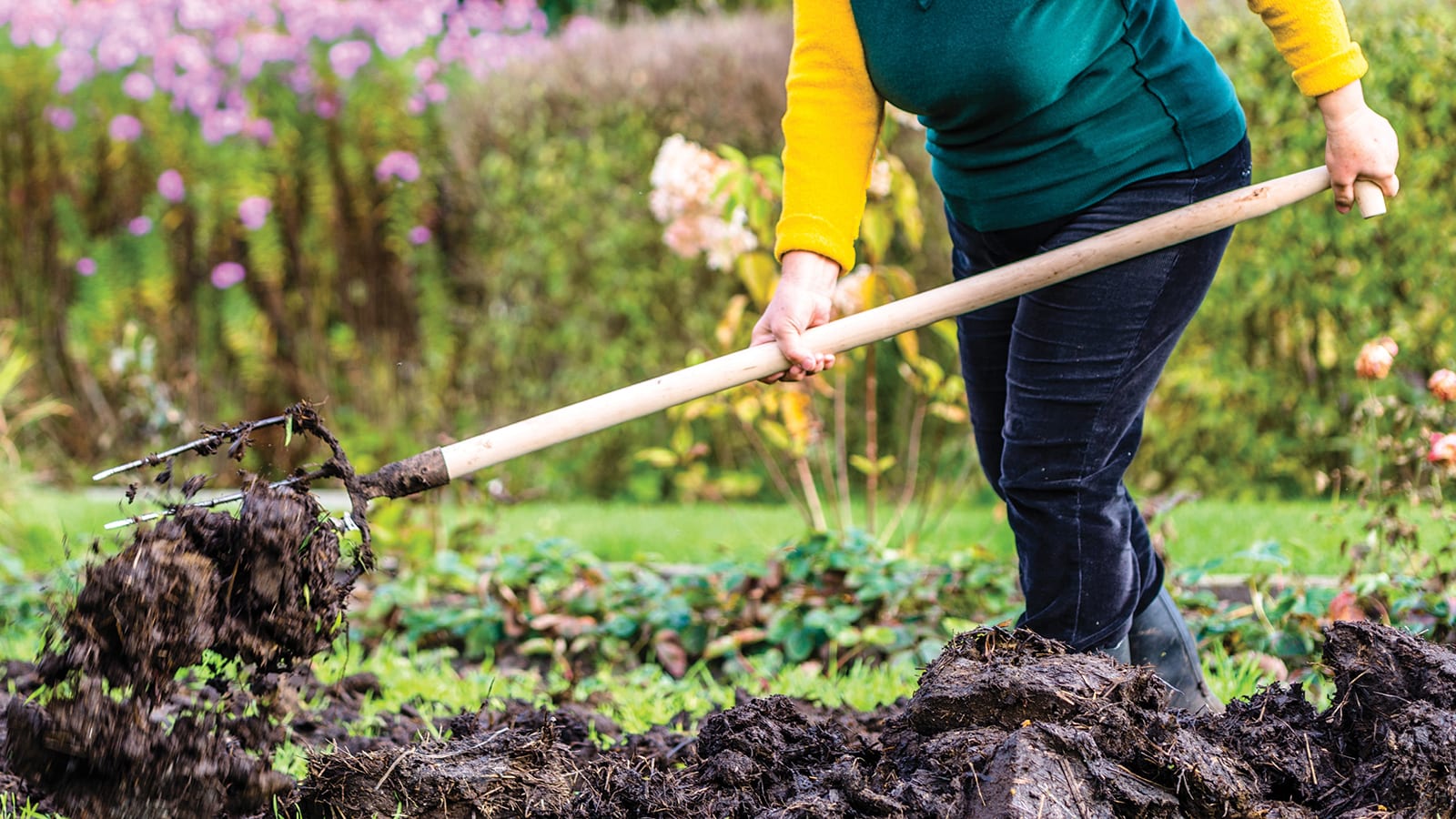Thirsty summer garden?
by Sarah Cassidy
This article was originally published in July 2018
Keep temps and bills low by building soil

You spend most of the year trying to dry it out and then three hot and spicy summer months trying to keep it moist. Our nearly rainless summers are part of the cost of living within the temperate rainforest region we PNWers inhabit. Used to be you could douse your garden liberally with water. Nature does not skimp when it comes to rain in our region and, thus, we’ve never needed to skimp on water usage.
Times have changed. Record hot temperatures are becoming the new normal for our normally temperate summers. Our region’s tree canopy is getting dismantled at a rapid pace to make way for urban and suburban development, creating a “Heat Island” effect that raises urban temperatures 5–10 degrees (Cliff Mass, MyNorthwest.com ). The spike in populations also draws down water tables. These trends affect our gardens directly: water is more precious than ever, yet soil is more parched than ever.
We can, as stewards of our respective Back 40s, help reverse these rising temperatures that threaten the soil’s health and the plants that depend on it. Without wasting water! We can cool, quench and fortify our soil in the simple act of adding organic matter to our gardens.
Organic matter: The balm
Organic matter is just a fancy term for “stuff that rots.” Rotting stuff gets a bad rap in our culture, so we like to cart it away as soon as possible: kitchen scraps, leaves, grass clippings, woody debris gets hauled to the yard waste station — on our nickel! Meanwhile, the soil in our gardens lays bare, hungry and parched without a protective blanket of organic matter.
Organic matter is the healing balm of the soil. Long before leaf blowers and lawn mowers, the Earth was building its soil reserves by leaving organic matter in situ to decompose and enrich. Nature offers “rotting opportunities” — spring and summer, when grass clippings are free and plentiful; fall, when leaves fall; winter, when tree limbs get “wind-pruned.” We can put this organic matter to work for our gardens.
Forest floor effect
Think about the last time you visited a healthy forest. Who tends this beautiful ecosystem, with its absence of weeds, its black, spongy soil, its hardy and happy natives? NO ONE is the beautiful response! It thrives on “benign neglect” — no overly efficient gardener raking and disposing of the dead debris and leaving the soil bare. Layers of organic matter create riches for the forest soil: food, for the billions of microorganisms that enhance soil health; drink, its spongy texture a buffer during droughts; and insulation, protection against vacillating temperatures.
Organic matter: Smooth or chunky
Like peanut butter, you can choose what kind of organic matter suits your taste! There are all kinds and shapes and sizes, both purchased and free, for your choosing.
Compost
Finished compost is a fine and grainy breakdown of once-large and chunky organic matter. This is “black gold” for your garden — it is bagged and sold in garden centers; veteran gardeners discuss making their own in reverent tones. It is highly desirable for its ability to be added directly into your garden beds. Compost contains micro-matter that is spongy in texture and will soak up moisture for later use.
Mulching materials
Mulch: chunkier than compost, it is organic matter that you apply to the soil surface (forest floor effect!) around your plants to lock in precious moisture, feed your soil, and prevent weeds.
Today’s mulch is tomorrow’s compost. All that is needed for this alchemy is time for the soil biota — worms, bugs, microorganisms — to break it down. So many offerings out there:
Grass clippings —
Pros: lush, full of nitrogen, good moisture-retention, free;
Cons: may contain weed seeds. Compost at high temperatures to sterilize seeds, or just weed (mulch makes it easier to weed!)
Kitchen scraps —
Pros: readily available, rich and nutritious, free;
Cons: should be composted to keep out rodents. Consider worm bins for this process!
Leaves —
Pros: nutritious, forthcoming, good moisture-retention, free;
Cons: none, in my opinion!
Straw (not hay) —
Pros: good insulation and moisture-retention;
Cons: not free, may have weed seeds mixed in.
Wood chips —
Pros: great carbonaceous amendment, attracts healthy microorganisms, free;
Cons: best used in perennial gardens and landscapes (carbon cycling bogs down annual soils)
Organic matter is out there, people — ready to be harnessed for the health of your soil, your water bill and our climate. Keep cool and mulch on!
Sarah Cassidy runs Hearth Farm with Luke Woodward, where they raise assorted crops, heirloom tomatoes, herbs, asparagus and pigs for their Duvall farm-to-table restaurant, The Grange. She also teaches food-growing classes for kids and adults through PCC Cooks.
